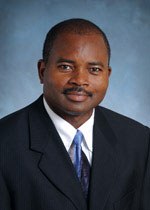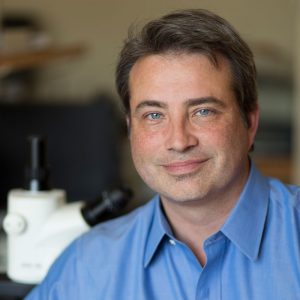Casimir C. Akoh
 Distinguished Research Professor 2004
Distinguished Research Professor 2004
Casimir C. Akoh, Professor of Food Science and Technology, conducts basic and applied research on lipids, edible oils and healthy fat substitutes. Using enzymes, he breaks apart short-, medium- and long-chain fatty acids from plant and animal fats, then restructures the fatty acids into nutritious, medically beneficial, low-calorie fats called structured lipids. These modified fats can be used in infant formulas, disease-specific nutrient supplements and foods such as margarine, salad dressing, snacks and confections. Early work helped create the fat substitute olestra, now called Olean. Dr. Akoh has been granted three patents and has received more than $2.7 million in research funding. With more than 120 peer-reviewed publications, he has been cited more than 1,800 times; his 2002 review article on structured lipids was downloaded more than 900 times in one month from the Institute of Food Technologists’ (IFT) Web site. He has edited 3 books, including a food lipids textbook, written 24 book chapters and consulted with researchers in Japan, France, Korea, Taiwan, Spain and Brazil. Research awards include UGA’s 2003 D.W. Brooks Award, a 1999 UGA Creative Research Medal, the 1998 IFT’s Samuel Cate Prescott Award and the International Life Sciences Institute 1996-97 Future Leader Award. Dr. Akoh will receive the American Oil Chemists’ Society Stephen S. Chang Award in May 2004.
Previous Award
Creative Research Medal 1999

 Distinguished Research Professor 2004
Distinguished Research Professor 2004 Distinguished Research Professor, 2004
Distinguished Research Professor, 2004 Creative Research Medal 2004
Creative Research Medal 2004 Creative Research Medal in Natural Sciences and Engineering 2018
Creative Research Medal in Natural Sciences and Engineering 2018 William A. Owens Award 2002
William A. Owens Award 2002